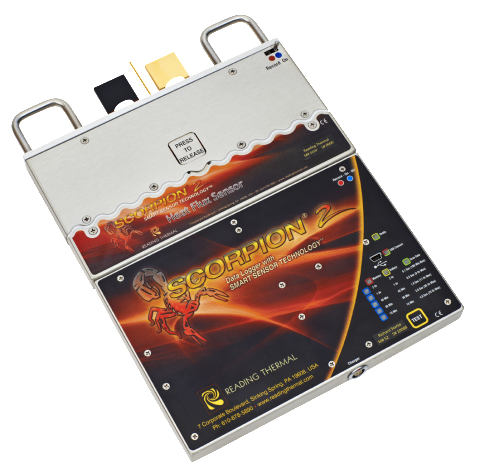Temperature control is crucial in food production, and nowhere is this more evident than in the baking industry. One of the most effective tools for maintaining precise temperature control and ensuring food safety is the SCORPION® 2 LITE Temperature Data Logger for commercial ovens from Reading Thermal.
In the context of Hazard Analysis and Critical Control Points (HACCP) compliance, temperature data loggers play a pivotal role. They not only help in maintaining the safety and quality of baked goods but also assist in meeting regulatory requirements. Here’s how temperature data loggers contribute to HACCP compliance.
Understanding HACCP and Its Importance
HACCP identifies potential hazards and implements control measures at critical points in the production process. It is a preventive system, designed to reduce the risk of foodborne illnesses by monitoring and controlling physical, chemical, and biological hazards. In the baking industry, temperature control is one of the critical control points (CCPs) that must be monitored to ensure that products are safe for consumption.
How Temperature Data Loggers Support HACCP Compliance
Temperature data loggers are devices that record temperature readings over time, providing a detailed record of the conditions within an oven or storage area. These records are essential for HACCP compliance, as they offer verifiable evidence that the baking process has been conducted within safe temperature ranges.
Continuous monitoring: One of the key benefits of temperature data loggers is their ability to provide continuous, real-time monitoring of temperature conditions. This is crucial in a baking environment, where even slight deviations from the ideal temperature can lead to safety risks. With data loggers, bakeries can continuously monitor the temperature at critical points, ensuring that it remains within the required range.
Automated data collection: Temperature data loggers automate the data collection process, reducing the likelihood of human error. Manual temperature checks can be time-consuming and are prone to inaccuracies. Data loggers, on the other hand, record temperatures automatically, ensuring that data is accurate and reliable. This automation is particularly important in a busy bakery environment where staff may not have the time to perform manual checks regularly.
Data storage and retrieval: HACCP requires that food producers maintain detailed records of their safety protocols and monitoring activities. Temperature data loggers store this information digitally, making it easy to retrieve and review when needed. This is especially useful during audits, as the stored data can be quickly accessed to demonstrate compliance with HACCP requirements.
Alerts and alarms: RBS temperature data loggers have alert systems that notify bakery staff if the temperature deviates from the set range. This immediate feedback allows for quick corrective action, minimizing the risk of producing unsafe baked goods. The ability to respond promptly to temperature fluctuations is critical in maintaining HACCP compliance.
Temperature Data Loggers and Verification Processes
Verification is a key component of HACCP, ensuring that the control measures in place are effective. Temperature data loggers play an essential role in this verification process. By analyzing the data collected over time, bakeries can assess whether their temperature control measures are consistently effective. If the data shows frequent deviations, it may indicate the need for adjustments to the process or equipment.
Find out more about the SCORPION® 2 LITE Temperature Data Logger for commercial ovens from Reading Thermal by contacting us online or calling 610-678-5890.

